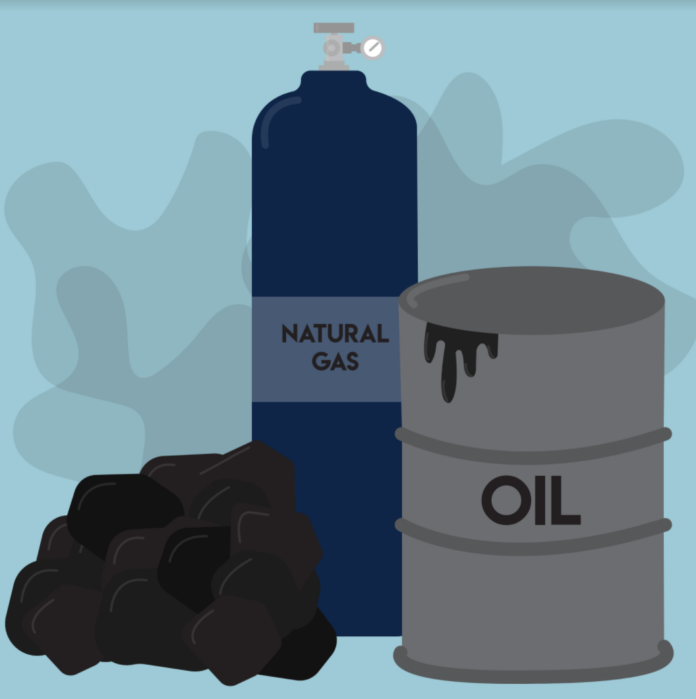This summer, Fossil Free UW achieved what it had been working toward for years — pressuring the University of Waterloo to commit to carbon-neutral investment and divest from investments in fossil fuels.
Fossil fuels include coal, oil and natural gas and have been the powerhouses of the economy for the last 150 years, supplying a majority of the world’s energy needs. They are resources formed from the carbon-rich remains of animals and plants compressed underground. Fossil fuel divestment aims to reduce carbon emissions by reinvesting in renewable energy sources such as solar and wind energy, as fossil fuels have catastrophic impacts on the environment and are irreversibly impacting the earth’s climate.
“The biggest achievement has been to achieve a change to our investment practice, which has included divestment from fossil fuel funds,” said Guy Brodsky, a member of Fossil Free UW. Brodsky described it as an inside game and an outside game, both going on at the same time. While the inside game includes getting signatures on petitions and letters, the outside game involves putting pressure on the people in charge through actions like protests.
Early successes paved the way for Fossil Free UW to achieve their biggest goal to date. These included the formation of a responsible investment working group put together by the university, which led to commitments like the Environmental Social Governance and UN Principles of Responsible Investing criteria to be applied to investment choices. Petitions were also key to success.
In September 2019, the momentum ramped up as 1,400 students striked for climate in the Arts Quad and marched down to Waterloo Square to demand climate action be taken at the university. Students continued protesting and sitting into meetings with the administration as they worked to gain campus support in the form of endorsements by WUSA, the Graduate Student Association, Waterloo Environment Students Endowment Fund (WESEF), Mathematics Endowment Fund (MEF), Waterloo Science Endowment Fund (WatSEF), and the Faculty Association Climate Justice Working Group.
The pieces came together by January 2021 as Fossil Free UW wrote a key divestment policy which was sent to the board of directors and included exactly how divestment could be achieved. Former president Feridun Hamdullahpur sat down with Fossil Free UW and put together a responsible investment advisory group as a subcommittee of the finance investments committee. Three of these members are representatives of Fossil Free UW.
By June 2021, divestment was announced. On the potential for this to inspire other universities, “[the University of] Waterloo is showing up as an example to other large universities…if they can do it, anyone can,” said Petra Duff, a coordinating member of Fossil Free UW.
When it comes to the broader community, Fossil Free UW is aligning with Divest Canada, a national coalition of university divestment groups. Fossil Free UW is also “willing and excited to collaborate with anyone to generally promote climate justice and other forms of justice,” Duff said. “It’s really important with this kind of work that we do to create bridges and links with groups with similar ideas in mind.”
While the goals of Fossil Free UW have been focused around the divestment and de-carbonization of divestment funds, while working toward carbon neutrality, they are now shifting toward themes of climate justice. Duff noted that the coalition is “shifting into a space where we are now trying to figure out what our exact goals are and what we want to see Fossil Free UW become going forward.” Duff added that the team wants this to be a legacy movement with a scope beyond pure divestment.
Students can get involved with Fossil Free UW by attending meetings and signing up to the email list by reaching out to fossilfreeuw@clubs.wusa.ca or by going to fossilfreeuw.ca to learn more about divestment. The coalition can also be found on Instagram, Twitter and Facebook at @fossilfreeuw.
“We’re in a transitional period right now in that we have ideas on where to start looking at next to either shift toward climate justice or campaign for re-investment or look at and support other divestment campaigns,” Duff said. “Right now we’re open to new perspectives and ideas from incoming students. We welcome people to join and bring their wants and needs to help bring Fossil Free UW forward into the direction they want to see it go in.”





























